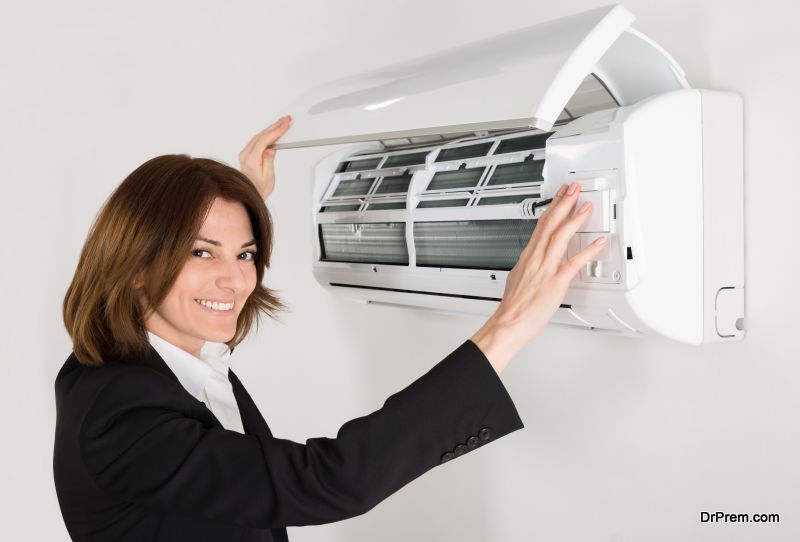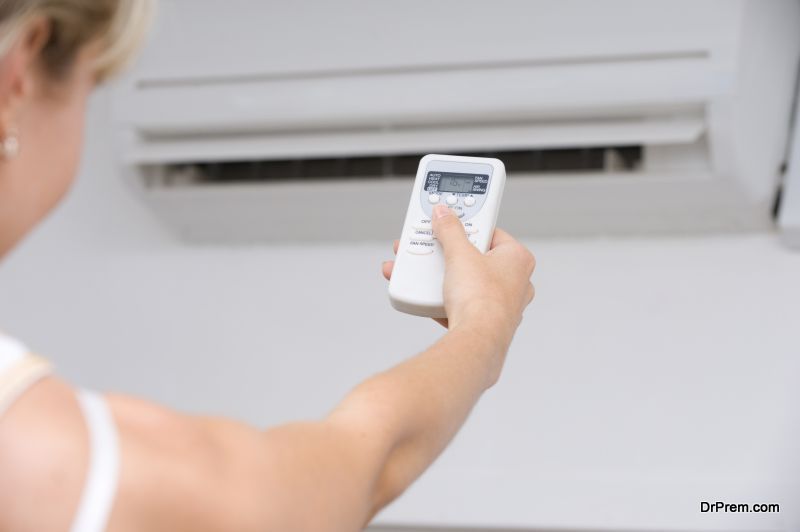You want your home’s air conditioning system to keep internal temperatures comfortable. However, at the same time, you also value efficiency when it comes to its energy usage and cost of operation. Statistics from the U.S. Department of Energy reveal that with a few wise tactics, many homeowners can use between 20 and 50 percent less energy cooling their home. A blend of upgraded technology and attention to periodic maintenance will ensure that you successfully cool your residence while paying lower energy costs.
Is It Time to Upgrade Your Air Conditioner?
Several recent innovations have improved the energy efficiency of air conditioning systems. In compliance with international Montreal Protocols geared to drastically reduce the use of ozone-depleting chemicals, the U.S. Environmental Protection Agency has specified that all AC models produced after 2010 must employ R410A refrigerant instead of R22. According to This Old House contributor Max Alexander, R410A does not contain chlorine and the compressors that utilize it run much quieter than their older counterparts. Additionally, systems use a condenser outside the house and an evaporator indoors to move hot air outside to be blown away by a fan.
Moreover, these newer options should prompt you to examine your current systems’ efficacy. ENERGY STAR guidelines suggest that air conditioners that are more than 10 years old should be swapped out for upgraded versions. Besides newer coolants and innovative high-efficiency units, a programmable thermostat controls when your system activates to avoid letting it run and waste electricity when you’re away. Finally, it may help to run ENERGY STAR’s Home Energy Yardstick test. You’ll need to answer some detailed questions and know your recent energy costs, but the results and recommendations can be a useful guide for future improvements.
Periodic Checkups Are Essential
Most experts recommend that an AC checkup be performed on your residence’s systems every year. There are several key benefits to these periodic inspections:
- Avoiding unanticipated maintenance issues
- Extending your unit’s lifespan
- Cutting down on frequent repairs
- Optimizing your system’s cooling capacity
Scheduling these regular checkups is critical, considering that there are many ways your system can underperform, develop faults or break down entirely. For example, rising energy bills and repair costs can indicate declining efficiency and functioning. Equipment faults may also cause uneven heating and cooling zones in your home, and excess humidity and dust particles can result from leaking ducts or poor operation. Extra noise can also signal an equipment issue that requires fixes or replacement of your AC unit.
Regular Upkeep Is Also Vital
In addition to scheduling a yearly AC checkup, performing some essential maintenance tasks will help extend the life of your system. First of all, you should swap out your air filter every one to three months and inspect it more frequently during the warmer seasons to sidestep running your unit with a dirty filter. Secondly, ensuring that your heating and cooling ducts are sealed goes a long way towards ensuring efficiency. As mentioned earlier, leaking ducts impact how well your AC unit operates and may also reduce the air quality inside your home.
Keep Your Home Comfortable for Less
Your AC unit requires attention and maintenance to keep it working in top condition. In addition to performing periodic upkeep on your own, a yearly AC checkup allows an experienced technician to spot potential troubles early. He or she will recommend solutions to repair your current systems or replace them with options that make better use of your home’s energy. Moreover, upgrading to newer, high-efficient mechanisms can also boost your savings while keeping your residence cooler for years to come. Your AC service vendor can guide you towards the best equipment, strategies and maintenance schedules for your home.
Article Submitted By Community Writer




